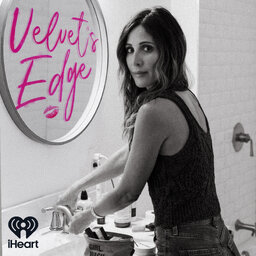Cobwebs: Shift Your Negative Self Talk with Katie Horwitch (The Velvet)
Kelly talks to author, speaker and podcast host Katie Horwitch about confronting those often unknown negative narratives circling in our heads in order to unearth the strength in who you were all along. Katie's new book, Want Your Self, breaks down the ways to identify these negative self-talk patterns, the difference between self like and self love and the 4 steps to self that are the foundation of it all. According to Katie, shifting your negative self talk is more than just speaking nicely to yourself. Katie and Kelly both also share personal examples of ways they have shifted the negative self-talk happening in their lives and the changes they have seen because of it.
Website: katiehorwitch.com
Podcast: The WantCast
Book: Want Your Self
Socials: @katiehorwitch
WANT website: Women Against Negative Talk --
 Velvet's Edge with Kelly Henderson
Velvet's Edge with Kelly Henderson


